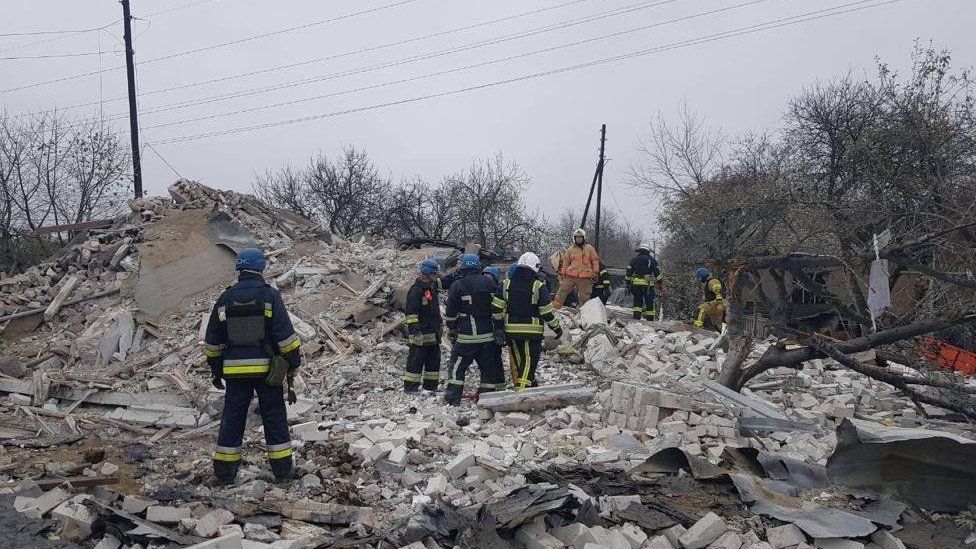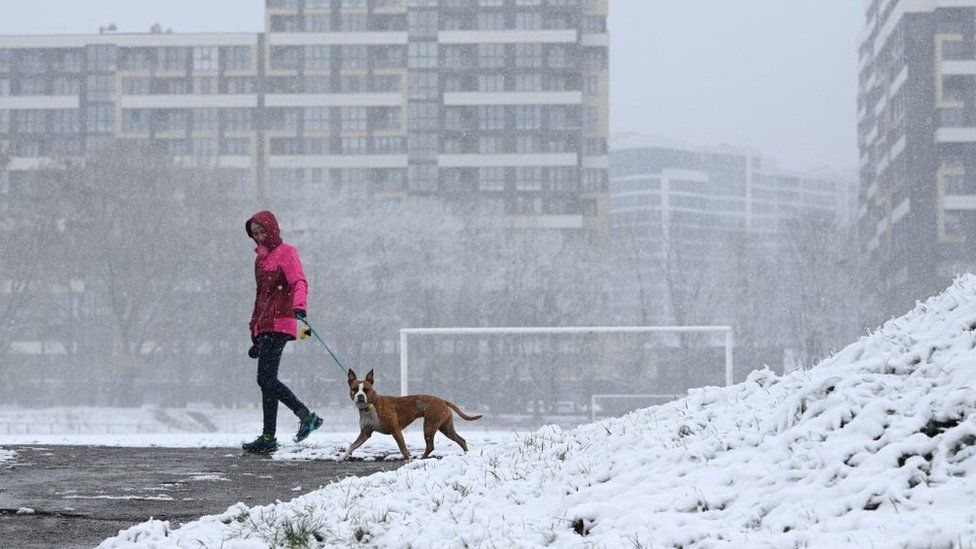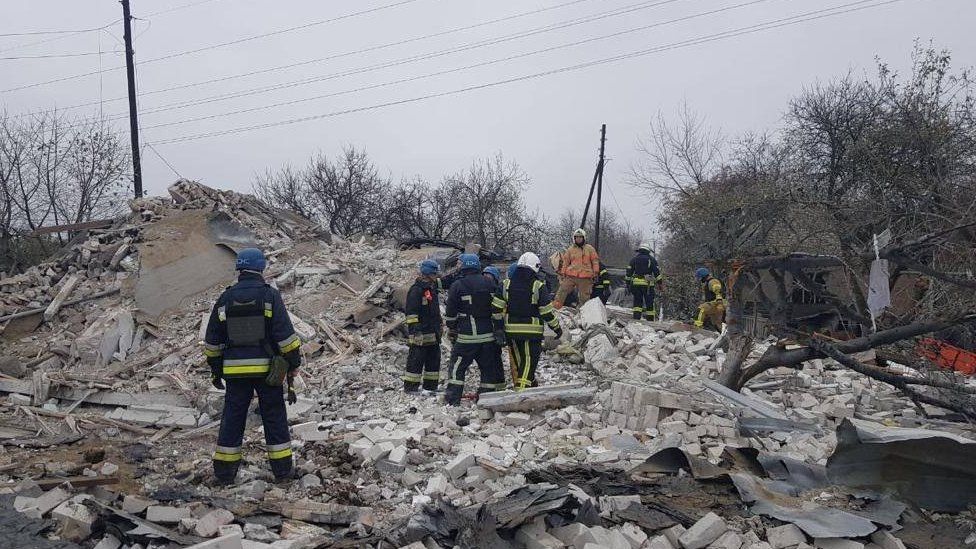Russia has pounded Ukraine with a fresh missile barrage, hitting more energy installations and other civilian buildings less than two days after one of its heaviest bombardments yet.
Seven people died when a missile hit their apartment block in Vilnyansk, near the southern city of Zaporizhzhia, the Ukrainian presidency said.
A gas production plant in the east and a missile factory in Dnipro were among the latest targets, officials say.
Many people are suffering power cuts.
President Volodymyr Zelensky accused Russia of destroying his people’s supplies of electricity and heat.
Moscow has looked to justify its recent strikes by accusing Kyiv of “unwillingness” to negotiate.

Photos of the Vilnyansk apartment block reduced to rubble were posted on Telegram by Kyrylo Tymoshenko, an aide to President Zelensky.
One of Ukraine’s largest cities, Dnipro, just north of Zaporizhzhia, was among those targeted early on Thursday. Prime Minister Denys Shmyhal said the Pivdenmash factory – which produces missiles – had come under attack.
Another official said 23 people, including a teenager, had been injured after the city was shelled.
The BBC was unable to confirm the latest civilian casualties independently.
Just south-west of Zaporizhzhia, 70 shells were said to have landed around the city of Nikopol, leaving thousands of homes without power and water.
Meanwhile, state-owned energy firm Naftogaz said its gas-producing facilities in the east of Ukraine had been subjected to a “massive attack”.
Further strikes on infrastructure – as well as civilian injuries – were logged by officials in the southern Odesa region and Kharkiv in the north.
The capital, Kyiv, was just one place where air raid sirens sounded. At about 08:00 local time (06:00 GMT), mobile phones started pinging with official warnings of a new missile attack across Ukraine.
Local air defences swung into action and military authorities reported that four cruise missiles and five Iranian-made drones had been shot down.
President Zelensky said Russia did not want peace, but instead was bringing his compatriots “only as much pain and suffering as possible”.

Ukrainians are taking air raid alerts seriously after another wide-ranging assault on Tuesday.
Dozens of long-range missiles pounded Ukraine that day, in what was believed to be the most intense barrage since the start of the war.
Late on Tuesday evening, fears were raised of a dangerous escalation in the war when one rocket landed outside Ukraine, killing two people in a village in Poland near the shared border.
Although President Zelensky was at first insistent that this had been fired by Russia, Kyiv’s allies said it instead appeared to have come from Ukrainian air defences.
However, the head of the Nato military alliance, Jens Stoltenberg, said Moscow was ultimately to blame for starting the war in the first place.
Many of the missiles fired by Russia on Tuesday were intercepted – but those that did manage to strike infrastructure targets managed to further deplete Ukraine’s power reserves.
This has been a recent Russian tactic following setbacks on the battlefield, and its impact is starting to be felt more acutely.
Residents of Kyiv woke up to a blanket of snow on Thursday morning. Emergency power shutdowns have meant that many people do not have heating in their homes.
America’s top general has warned that Kyiv’s chances in the short term of winning the war by taking back all Russian-occupied land are “not high, militarily”.
Gen Mark Milley acknowledged, however, that there could be a “political solution” in which Russia made a decision to withdraw – saying the invading power was “on its back”.
In recent days, there has been optimism on the Ukrainian side following the recapture of the southern city of Kherson.
Reports have now emerged of civilians being tortured during the Russian occupation there. Russia has repeatedly denied committing atrocities during the conflict.
In other developments, the Ukrainian government has said a deal that allows it to export grain by ships on the Black Sea has been extended for another 120 days.
The agreement, brokered by the UN and Turkey, has allowed millions of tonnes of produce to be shipped out of Ukraine in recent months – easing worries about global food security.
Before it was implemented in July, Russia had been blocking Ukraine’s Black Sea ports. It confirmed on Thursday that the deal would be continued “without changes”.























